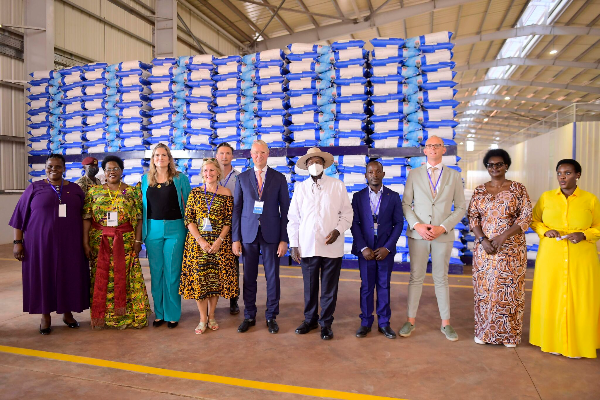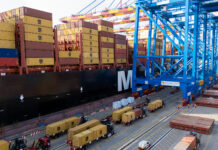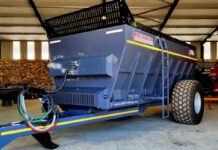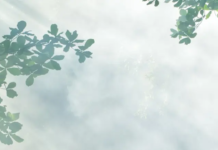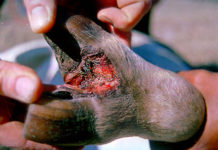Smallholder and commercial fish farmers in Uganda and East Africa are set to benefit from cheaper and more dependable access to quality feed following the launch of De Heus Animal Nutrition’s state-of-the-art factory in Njeru, near Jinja.
Officially inaugurated on September 2, 2025, the high-capacity plant is expected to ease the burden of costly imports, cut production expenses, and boost fish yields—marking a major milestone for aquaculture across East Africa.
The facility, one of the most advanced of its kind on the continent, has a potential annual capacity of 100,000 metric tons of fish feed.
This significant scale-up is designed to meet the growing demand for aquafeed in Uganda and the wider region while ensuring that farmers have access to high-quality, locally produced feed at more affordable prices.
Sustainability at the Core
In line with De Heus’s global sustainability agenda, the factory integrates environmentally friendly technologies, such as a biomass boiler that reduces fossil fuel use.
By prioritizing the use of locally available raw materials—including maize, cassava, and soybeans—the company aims to strengthen value chains and create more opportunities for Ugandan farmers to supply raw inputs.
According to De Heus Uganda Managing Director Bon Tjeenk-Willink, the plant’s operations will generate far-reaching benefits for communities across the country.
Once running at full capacity, it is projected to support up to 10,000 jobs on fish farms while sourcing agricultural produce from about 15,000 smallholder farmers.
This move highlights a deliberate shift toward value-added production, where local crops are transformed into premium aquafeed, driving both economic resilience and food security.
The Njeru facility has been years in the making. Ground was broken in June 2023, followed by steady construction—laying foundations, erecting walls, installing silos, and testing equipment through mid-2025. Its completion reflects a firm commitment by De Heus to invest in the region’s aquaculture future.
Supporting Farmers Beyond Feed
The company’s vision extends beyond production. The new factory complements De Heus Uganda’s existing aquafeed outlets in Jinja and Hoima and is supported by farmer training programs that emphasize best practices in feed usage and water management, particularly for tilapia—the most widely farmed species in East Africa.
Through its collaboration with Enabel, the Belgian development agency, De Heus is also helping to strengthen the broader fish value chain by promoting outgrower schemes, supporting youth entrepreneurship, exploring alternative proteins, and encouraging sustainable aquaculture practices.
Boosting Food Security and Regional Trade
Uganda’s aquaculture industry has been growing rapidly, driven by abundant natural water resources and favorable climatic conditions. With wild fish stocks stagnating and population growth increasing demand, farmed fish has become a cornerstone of food security.
Yet, until now, farmers have struggled with shortages and high feed prices, sometimes reaching US$1,050 per ton for imported products. The new Njeru facility is expected to lower these costs significantly, making fish farming more profitable and sustainable.
A Model for Regional Growth
Beyond Uganda, the factory is set to supply neighboring markets in Kenya, Tanzania, and Rwanda, positioning the country as a key aquafeed hub in East Africa. By tailoring global formulations to regional farming conditions, De Heus is enhancing both the sustainability and competitiveness of aquaculture across the region.
As the plant begins operations, the combination of modern production, environmental responsibility, and farmer empowerment offers a promising blueprint for strengthening aquaculture in East Africa—ensuring that farmers can access affordable, reliable feed to grow their businesses and improve livelihoods.


